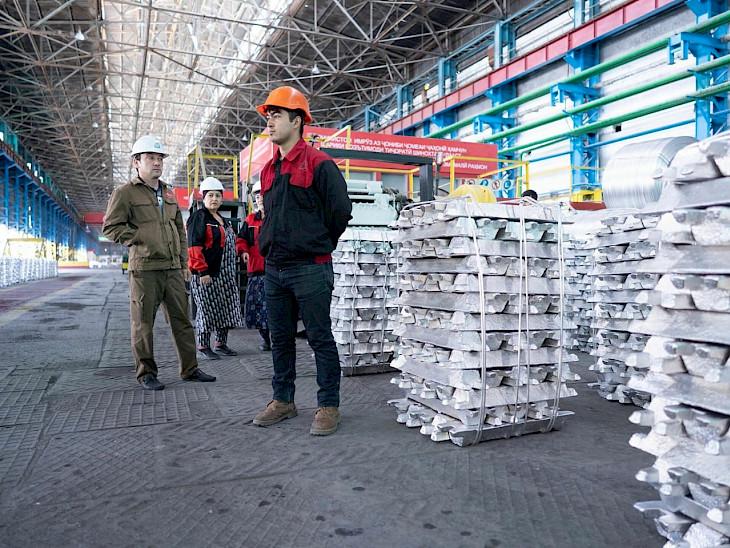In the Economic Freedom Index, Tajikistan has improved its score by 0.7 points and now occupies the 137th place among 184 countries in the world with 51.3 points, according to an editorial article by Asia Plus.
Despite this, Tajikistan's economy continues to remain "mostly unfree."
At the top of the ranking of countries with free economies (scoring over 80 points) are Singapore, Switzerland, Ireland, and Taiwan (China).
In Central Asia, Kazakhstan ranks highest (62.1 points) and is the only country in the region whose economy falls into the category of "moderately free."
Alongside Tajikistan, Uzbekistan (55.9) and Kyrgyzstan (55.2) also have "mostly unfree" economies. Meanwhile, Turkmenistan's economy, with a score of 46.3, falls into the category of "despotic" countries in the world.
The Economic Freedom Index is assessed based on 12 components, including property rights, efficiency of the legal system, freedom from corruption, tax freedom, government spending, freedom from government, business freedom, labor freedom, monetary freedom, trade freedom, investment freedom, and financial freedom. Each parameter is also evaluated on a scale from 0 to 100 points, and their average values ultimately determine the Economic Freedom Index.
Corruption Hinders Tajikistan's Development
Let's consider how Tajikistan compares to neighboring countries in some of these 12 criteria.
Property rights are seen as a central condition for capital accumulation. In this component, Tajikistan, with a score of 29.2, ranks third in the region after Kazakhstan (54.8) and Uzbekistan (30.9), with Kyrgyzstan (24.2) and Turkmenistan (19.1) at the bottom of the list.
In Tajikistan, like in all Central Asian countries, there is very low judicial efficiency, which should protect entrepreneurs from encroachments on their rights by state authorities. In this criterion, Tajikistan scored 17.7 points, with only Turkmenistan scoring worse at 8.1. Kazakhstan is the most protected with a score of 36.9, although this is still significantly below the global average.
The most troubling aspect of Tajikistan's economy is corruption.
Bribery, nepotism, abuse of power for personal gain, and the use of official position for corrupt purposes have resulted in businessmen being unable to resolve their issues without bribes, gifts, or the use of informal connections.
Experts note that there is a connection between how much the state tries to regulate economic relations and the prevalence of corruption: the more government agencies take on the role of regulating the economy, the more temptation there is for officials to "earn" money illegally.
Thus, in the "Freedom from Corruption" category, Kazakhstan is doing better (score - 34.4), while the economies of the other Central Asian countries suffer from corruption: Uzbekistan and Kyrgyzstan - 13.0, Tajikistan - 11.7, Turkmenistan - 9.7.
Tax Burden
According to the index authors, the tax burden negatively affects economic development. The higher the taxes, the less interested entrepreneurs are in carrying out any work and lose motivation. It is worth noting that the indicators of the tax burden in all countries of the region are approximately the same: in Tajikistan - 92.0, in Kyrgyzstan - 95.
Business Freedom characterizes an individual's ability to independently, with minimal interaction with the state, start and conduct their own business. The need to obtain various registration and permission documents, the difficulty of obtaining them, reduces business freedom.
In this regard, the countries of the region are in the middle of the list. Kazakhstan received a high score - 64.6, while Tajikistan - 56.8, much better than in previous years.
Uzbekistan leads in two positions - trade freedom and investment freedom. Tajikistan lags far behind, scoring only 25 points, while Uzbekistan scored 60.
The study is conducted annually by the Wall Street Journal and the Heritage Foundation research center.
According to experts, Tajikistan's economic development lags behind that of most developing countries, partly due to high dependence on the export of raw materials and insufficient economic diversification.
CentralasianLIGHT.org
March 28, 2024

